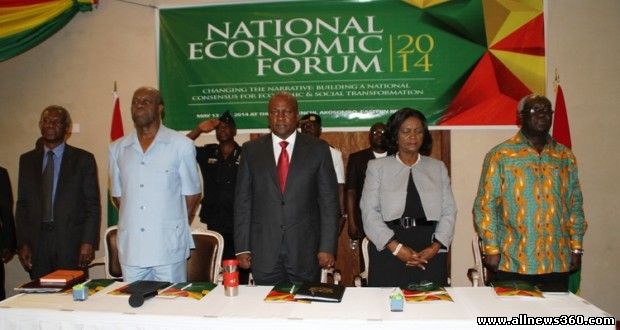 From May 12 – 15, 2014, 140 Ghanaians drawn from organized labour, Ghanaian private sector, professional associations, financial institutions, security services, traditional leaders, political parties, parliamentarians, the clergy, policy think tanks, academia, civil society, and government ministries met in Senchi in the spirit of our shared interest and commitments for Building a National Consensus for Economic and Social Transformation as well as our collective pursuit of inclusive and sustainable [...] From May 12 – 15, 2014, 140 Ghanaians drawn from organized labour, Ghanaian private sector, professional associations, financial institutions, security services, traditional leaders, political parties, parliamentarians, the clergy, policy think tanks, academia, civil society, and government ministries met in Senchi in the spirit of our shared interest and commitments for Building a National Consensus for Economic and Social Transformation as well as our collective pursuit of inclusive and sustainable [...]
|
 The International Monetary Fund (IMF) has announced it has received a formal request from Ghana to initiate discussions on an economic programme that could be supported by the IMF. The Deputy Managing Director of the IMF, Min Zhu in a statement said: “The Fund stands ready to help Ghana address the current economic challenges it is facing.” “An IMF team will be sent to Ghana in early September to initiate discussions on a programme,” he added. Last week, the government announced {....} The International Monetary Fund (IMF) has announced it has received a formal request from Ghana to initiate discussions on an economic programme that could be supported by the IMF. The Deputy Managing Director of the IMF, Min Zhu in a statement said: “The Fund stands ready to help Ghana address the current economic challenges it is facing.” “An IMF team will be sent to Ghana in early September to initiate discussions on a programme,” he added. Last week, the government announced {....}
|
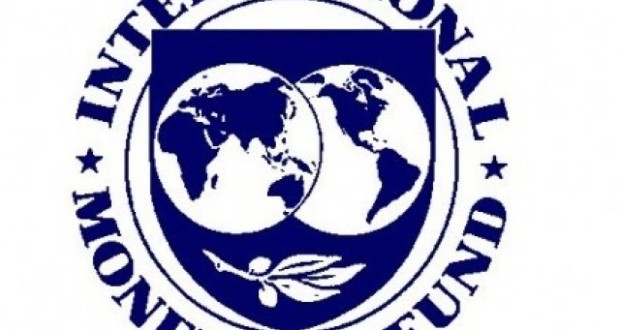 The Chief Executive Officer of Dalex Finance, Mr Kenneth Kwamina Thompson has asked Ghanaians to brace themselves for painful impact from the measures from the bailout government is seeking from the International Monetary Fund (IMF). “There is going to be an attempt to curb expenditure, public sector wage bill would have to be managed, IMF is going to recommend the removal of subsidies on things like petrol, electricity, water and we will be required to do things in a certain way {....} The Chief Executive Officer of Dalex Finance, Mr Kenneth Kwamina Thompson has asked Ghanaians to brace themselves for painful impact from the measures from the bailout government is seeking from the International Monetary Fund (IMF). “There is going to be an attempt to curb expenditure, public sector wage bill would have to be managed, IMF is going to recommend the removal of subsidies on things like petrol, electricity, water and we will be required to do things in a certain way {....}
|
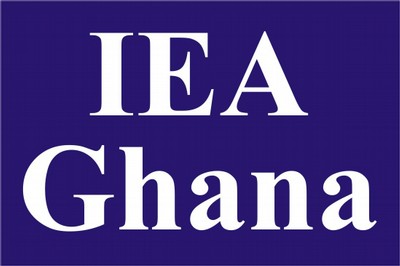 A senior Economist at the Institute of Economic Affairs (IEA), Dr. J. K Kwakye has attributed Ghana’s challenge of controlling inflation to the redenomination of the cedi in 2007. The erstwhile Kufuor administration carried out a cedi redenomination exercise in 2007. Government, at the time said the purpose of the exercise was to address past episodes of high inflation rates and other economic challenges. But delivering the IEA’s 2014 mid-year economic review of the country, Dr. Kwakye insisted {......} A senior Economist at the Institute of Economic Affairs (IEA), Dr. J. K Kwakye has attributed Ghana’s challenge of controlling inflation to the redenomination of the cedi in 2007. The erstwhile Kufuor administration carried out a cedi redenomination exercise in 2007. Government, at the time said the purpose of the exercise was to address past episodes of high inflation rates and other economic challenges. But delivering the IEA’s 2014 mid-year economic review of the country, Dr. Kwakye insisted {......}
|
 As the central bank pins its hopes on the cocoa syndicated loan and Eurobond issuance to break the fall of the local currency, David Brocke, Director, Risk Assurance, of PwC, believes inflows from the two loans, estimated at US$3billion, will do little to assuage the pressure on the cedi. The cedi has depreciated by 27 percent this year as shortage of the dollar continues to dictate the price at which the greenback is traded. After several attempts to stem the cedi’s decline yielded little results {.....} As the central bank pins its hopes on the cocoa syndicated loan and Eurobond issuance to break the fall of the local currency, David Brocke, Director, Risk Assurance, of PwC, believes inflows from the two loans, estimated at US$3billion, will do little to assuage the pressure on the cedi. The cedi has depreciated by 27 percent this year as shortage of the dollar continues to dictate the price at which the greenback is traded. After several attempts to stem the cedi’s decline yielded little results {.....}
|
 President John Dramani Mahama has said the nation’s economy will grow in spite of current challenges. Government has been criticized for the rising inflation rate, high budget deficit, tax evasion, corruption in public institutions and other challenges facing the country. But speaking at the Global Leadership Training forum, President Mahama was optimistic Ghana’s economy will overcome its current challenges.According to him, “a new oil bill which will increase Ghana’s oil production from [....] President John Dramani Mahama has said the nation’s economy will grow in spite of current challenges. Government has been criticized for the rising inflation rate, high budget deficit, tax evasion, corruption in public institutions and other challenges facing the country. But speaking at the Global Leadership Training forum, President Mahama was optimistic Ghana’s economy will overcome its current challenges.According to him, “a new oil bill which will increase Ghana’s oil production from [....]
|
 Singapore has begun talks with the government to secure a double-taxation agreement with Ghana in a move that is intended to deepen trade ties between the two countries. The Singapore government has since last year set up an office in the country for its investment promotion and facilitation agency, International Enterprise (IE) Singapore, in a bid to promote and facilitate investment flow from Singapore into Ghana and other West-African states. According to IE Singapore, the Singapore government’s [....] Singapore has begun talks with the government to secure a double-taxation agreement with Ghana in a move that is intended to deepen trade ties between the two countries. The Singapore government has since last year set up an office in the country for its investment promotion and facilitation agency, International Enterprise (IE) Singapore, in a bid to promote and facilitate investment flow from Singapore into Ghana and other West-African states. According to IE Singapore, the Singapore government’s [....]
|
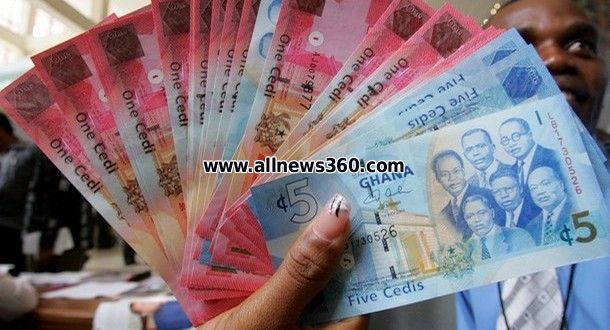 Last week Friday marked exactly 5 months since the Bank of Ghana introduced the new forex rules. Citi Business News analysis shows that the cedi has depreciated by about 27 percent to major trading currencies from the beginning of the year and about 22 percent after the introduction of the new foreign exchange rules on February 4. Prior to the introduction of the new rules, the cedi had depreciated by about 8.1 percent to the US dollar, about 6.8percent to the British Pound and 6.4percent to the Euro [....] Last week Friday marked exactly 5 months since the Bank of Ghana introduced the new forex rules. Citi Business News analysis shows that the cedi has depreciated by about 27 percent to major trading currencies from the beginning of the year and about 22 percent after the introduction of the new foreign exchange rules on February 4. Prior to the introduction of the new rules, the cedi had depreciated by about 8.1 percent to the US dollar, about 6.8percent to the British Pound and 6.4percent to the Euro [....]
|
 A Lecturer at Ashesi University, Dr. Esi Ansah has advised government to work with the private sector to address Ghana’s economic challenges. “I am looking for a time when our leaders will engage with people in the private sector such as the CSOs to figure out some of the things they can do to fix Ghana’s problems,”Dr. Ansah proposed. Government has been criticized for its failure to halt the depreciation of the cedi, high inflation rate, rising budget deficit and increased cost of borrowing and other [...] A Lecturer at Ashesi University, Dr. Esi Ansah has advised government to work with the private sector to address Ghana’s economic challenges. “I am looking for a time when our leaders will engage with people in the private sector such as the CSOs to figure out some of the things they can do to fix Ghana’s problems,”Dr. Ansah proposed. Government has been criticized for its failure to halt the depreciation of the cedi, high inflation rate, rising budget deficit and increased cost of borrowing and other [...]
|
 The Alliance for Green Revolution in Africa (AGRA) has organized a stakeholder forum for local countries to share lessons and issues arising from fertilizer quality control implementation strategies. The workshop according to AGRA comes at a time when fertilizer value chain is going through many challenges of quality standards that erodes the confidence and trust of farmers. The forum is also hoped to contribute immensely to help streamline and bring [...] The Alliance for Green Revolution in Africa (AGRA) has organized a stakeholder forum for local countries to share lessons and issues arising from fertilizer quality control implementation strategies. The workshop according to AGRA comes at a time when fertilizer value chain is going through many challenges of quality standards that erodes the confidence and trust of farmers. The forum is also hoped to contribute immensely to help streamline and bring [...]
|
 The Minister of Foreign Affairs and Regional Integration, Hannah Tetteh, has stressed the need for people in the West African Sub-Region to be more creative about regional integration to have the opportunity to attract more investors to the Sub-Region. She noted that most of the people within the Sub-Region have not realized the relevance of ECOWAS because governments have not been able to operationalize the structures for its effectiveness and efficiency. Ms Tetteh was delivering the keynote address at [...] The Minister of Foreign Affairs and Regional Integration, Hannah Tetteh, has stressed the need for people in the West African Sub-Region to be more creative about regional integration to have the opportunity to attract more investors to the Sub-Region. She noted that most of the people within the Sub-Region have not realized the relevance of ECOWAS because governments have not been able to operationalize the structures for its effectiveness and efficiency. Ms Tetteh was delivering the keynote address at [...]
|
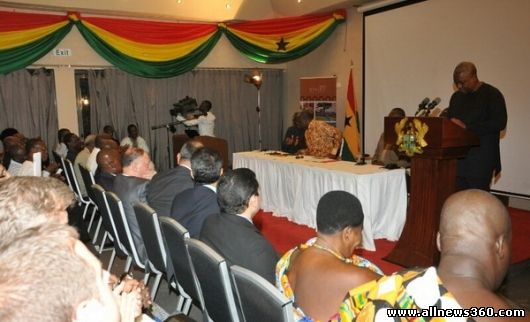 The Association of Ghana Industries (AGI) has hinted of its intentions to independently monitor the implementation of the various agreements reached at the National Economic Forum, which ended Thursday. The monitoring, it said, is to ensure that the policies proposed by the team of experts at the forum are fully implemented to the benefit of the private sector and the manufacturing public in particular. The three-day event, which was opened on May 13 by President John Mahama, ended Thursday with a set [...] The Association of Ghana Industries (AGI) has hinted of its intentions to independently monitor the implementation of the various agreements reached at the National Economic Forum, which ended Thursday. The monitoring, it said, is to ensure that the policies proposed by the team of experts at the forum are fully implemented to the benefit of the private sector and the manufacturing public in particular. The three-day event, which was opened on May 13 by President John Mahama, ended Thursday with a set [...]
|
 The Taskforce on the Seizure and Disposal of Pirated Ghanaian Textile Designs (TSDPGTD) has completed a nationwide sensitization exercise, which was aimed at educating dealers and the general public on the effects of pirated textile to Ghana’s economy. Similar sensitization workshops had already been carried out in Central, Western, Eastern, Ashanti, Volta, Brong Ahafo, Upper West and Upper East regions. The sensitization by the Taskforce was carried out under the[...] The Taskforce on the Seizure and Disposal of Pirated Ghanaian Textile Designs (TSDPGTD) has completed a nationwide sensitization exercise, which was aimed at educating dealers and the general public on the effects of pirated textile to Ghana’s economy. Similar sensitization workshops had already been carried out in Central, Western, Eastern, Ashanti, Volta, Brong Ahafo, Upper West and Upper East regions. The sensitization by the Taskforce was carried out under the[...]
|
|
